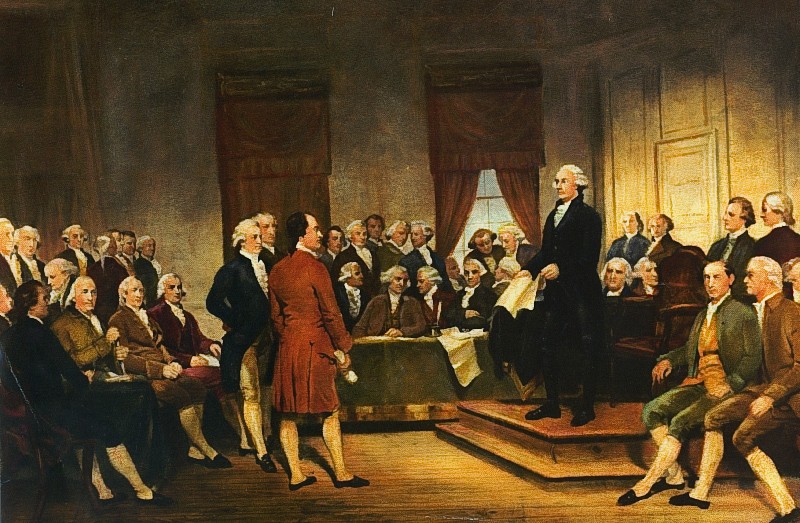
ADVERTISEMENT - CONTINUE READING BELOW
6. Alexander Hamilton was unsure of his own ancestry
Unlike James Madison, who came from a distinguished Virginia family, Alexander Hamilton was born out-of-wedlock. The year of his birth, on the island of Nevis, is uncertain. His mother was a bigamist, and her death left Hamilton and his brother, James, orphaned. Their father had abandoned them some time before. By the late 1760s, Hamilton worked for an import-export firm in New York, operating out of various Caribbean ports. Because of the circumstances of his birth, Hamilton could not be educated in the schools of the Church of England. He largely educated himself through reading, supplemented by a private tutor. In 1772 he moved to New York, where he undertook to prepare himself to enter King’s College, today’s Columbia University. He served with Washington during the American Revolution, spending four years of the war as the General’s chief aide.
After returning to New York following the victory at Yorktown Hamilton studied for several months before passing the bar exam in 1782. In 1784 he founded the Bank of New York. He went to the Constitutional Convention well-versed in finance, law, and the weakness of the federal government under the Articles of Confederation. He became one of the earliest supporters of the Virginia Plan, and an ardent supporter of the draft constitution submitted to the states for ratification in 1787. The convention kept no minutes of its debates, all that was left to posterity were the notes kept by its delegates which have survived. Madison kept meticulous, extensive notes, over 100 pages. Hamilton’s are less so, though from the essays which followed arguing in support of ratification his position during the convention can be readily inferred.

